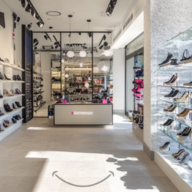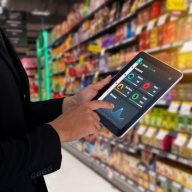Know thy millennials

Retail
297 week ago — 7 min read
Background: A look at key characteristics about millennials that retailers should know. After all, they are emerging as the most powerful consumer groups in the world.
India has the world’s largest millennial population in absolute terms. Falling in the age group of 18-35 years, and with a population of over 440 million, millennials constitute nearly 34 percent of the country’s total population.
‘Unravelling the Indian Consumer’, a report by Deloitte and Retailers Association of India (RAI) examines India’s macroeconomic scenario vis-à-vis the global economy as well as defining trends of the retail sector. At 48 percent, millennials account for a major share in the Indian workforce population and therefore, one of the key factors this report examines is the impact of millennials on the retail sector.

Social commerce for ‘We shopping’
Significance of ‘S-commerce’ or Social Commerce has significantly increased in today’s world of connected consumers. Pictures and videos of products/brands posted by consumers on social networking sites and blogs, user experiences and stories shared on the web, ratings, reviews and recommendations posted online act as user-generated advertorial content.
This content either promotes or demotes a particular product, brand, or service amongst a specific set of people that have access to view/read the content. Social commerce is not just restricted to social network driving sales, but consists of other forms such as peer-to-peer sales platforms (community-based marketplaces), group buying (products and services offered at reduced rates if enough buyers are willing to make the purchase), user-curated shopping (where users create and share list of products/services for others to shop from), participatory commerce (where consumers become decision makers across the product value chain through voting, funding, and collaboratively designing).
Since consumers can freely post information regarding their purchases or experiences on various social platforms and express their views, social media has become a great tool for companies to engage with consumers. Companies are leveraging various analytical tools and advance analytics are being to analyse the social and behavioural traits of the consumers and tweak their strategies accordingly to suit the consumers’ needs and convenience. Social sites are also used frequently to raise queries or post grievances which keeps the consumer companies on their toes to respond promptly to such concerns and avoid any damage to their social rapport.
Social media platforms and online product / service reviews form an important part of the millennials’ shopping journey as it influences their purchase decisions: As many as 28% millennials purchase products due to social media recommendations, 63% millennials stay updated on brands through social media.

Also read: Experience explained
Millennials form the largest population group globally, thereby, driving advancements in the consumer industries. With nearly 2 billion millennials (over 27 percent) out of the total population of 7.4 billion people globally, the cohort forms the largest demographic group in the world.
At 48 percent, millennials account for a major share in the Indian workforce population and therefore, one of the key factors this report examines is the impact of millennials on the retail sector.
Millennials are the first global generation of digital natives, implying that the population group was the first to witness and leverage technology and internet for shopping. Being better connected to information and being the chief wage earners in the household, millennials have significant spending power and greater access to products and services. This trend is expected to drive the consumer market in the country, leading to disruptions, especially in discretionary segments where the millennial group, in general, has a greater tendency to spend more vis-à-vis their increasing disposable incomes.
The key characteristics of the evolving customer needs of these millennials have been identified below:
Greater emphasis on healthcare and wellness: Millennials are increasingly becoming health conscious and placing higher importance on physical and emotional wellbeing, and thus, swiftly moving towards healthier and organic options. Research indicates that 36 percent of the Indian millennials have at least one fitness app installed on their phones and about 45 percent think leading a healthy life is essential. Therefore, even though ‘eating out’ as a concept has significantly increased, specifically amongst millennials, focus on healthy alternatives is also on the rise.
Even under the personal care category, there is a growing reliance on nature-based or organic cures. Customers are looking for chemical free, ayurvedic products for their daily skincare regime, and hence, a large number of leading and upcoming brands are focusing on the same.
Also read: 10 retail trends to watch out for
Importance of convenience: Convenience is an important consideration for millennials on account of their hectic lifestyle. For the working younger generation, dearth of time is one of the key reasons for the growth in online shopping and online ordering from restaurants. It is for this reason that the ‘ready to eat’ product category has grown exponentially at the rate of over 28 percent per annum over the last five years.
Value delivered by the brand: Millennials view brands through a holistic lens and place greater reliance on the ethos and the value system of the brand. Brands that clearly define the source of their materials or establish work done for a specific cause/movement tend to strike a chord with current and prospective customers.
Need for personalisation: Millennials aim at differentiating themselves from the rest of the crowd and in lieu of the same, prefer personalised product and service categories. They attach more importance to aesthetic aspects than to core functional aspects. Thus, personalisation is gaining focus.
Also read: Colours of 2019
Article published in STOrai Magazine, based on the report ‘Unravelling the Indian Consumer’, by Deloitte and Retailers Association of India (RAI).
Disclaimer: The views and opinions expressed in this article are those of the author and do not necessarily reflect the views, official policy or position of GlobalLinker.
View STOrai 's profile
Other articles written by STOrai Magazine
The Art & Science of People Pleasing in Retail
10 week ago
Most read this week













Comments
Share this content
Please login or Register to join the discussion